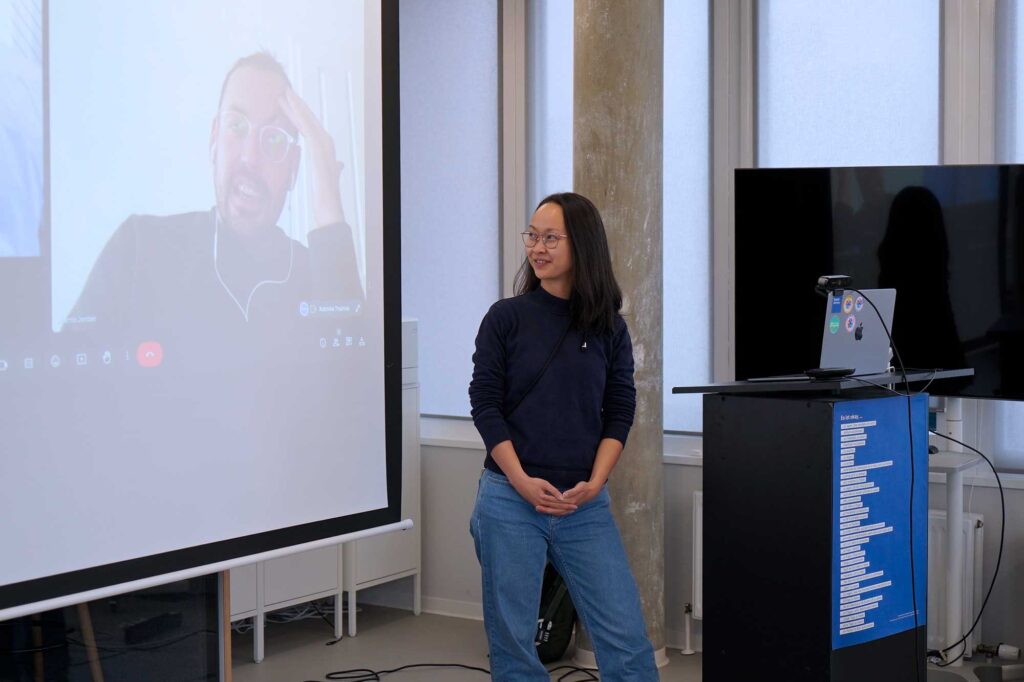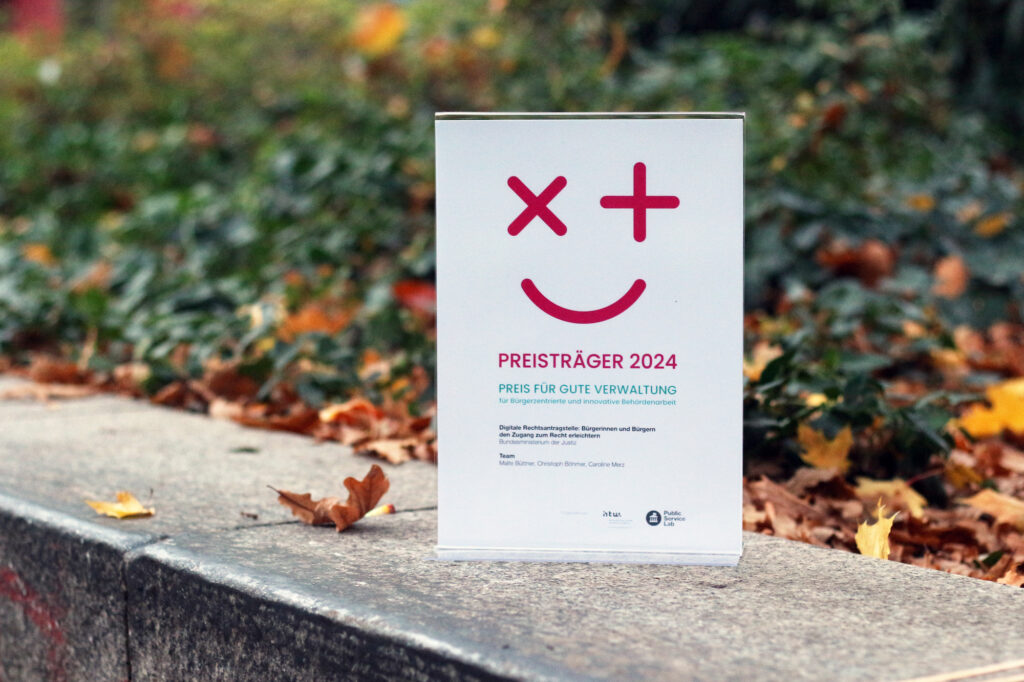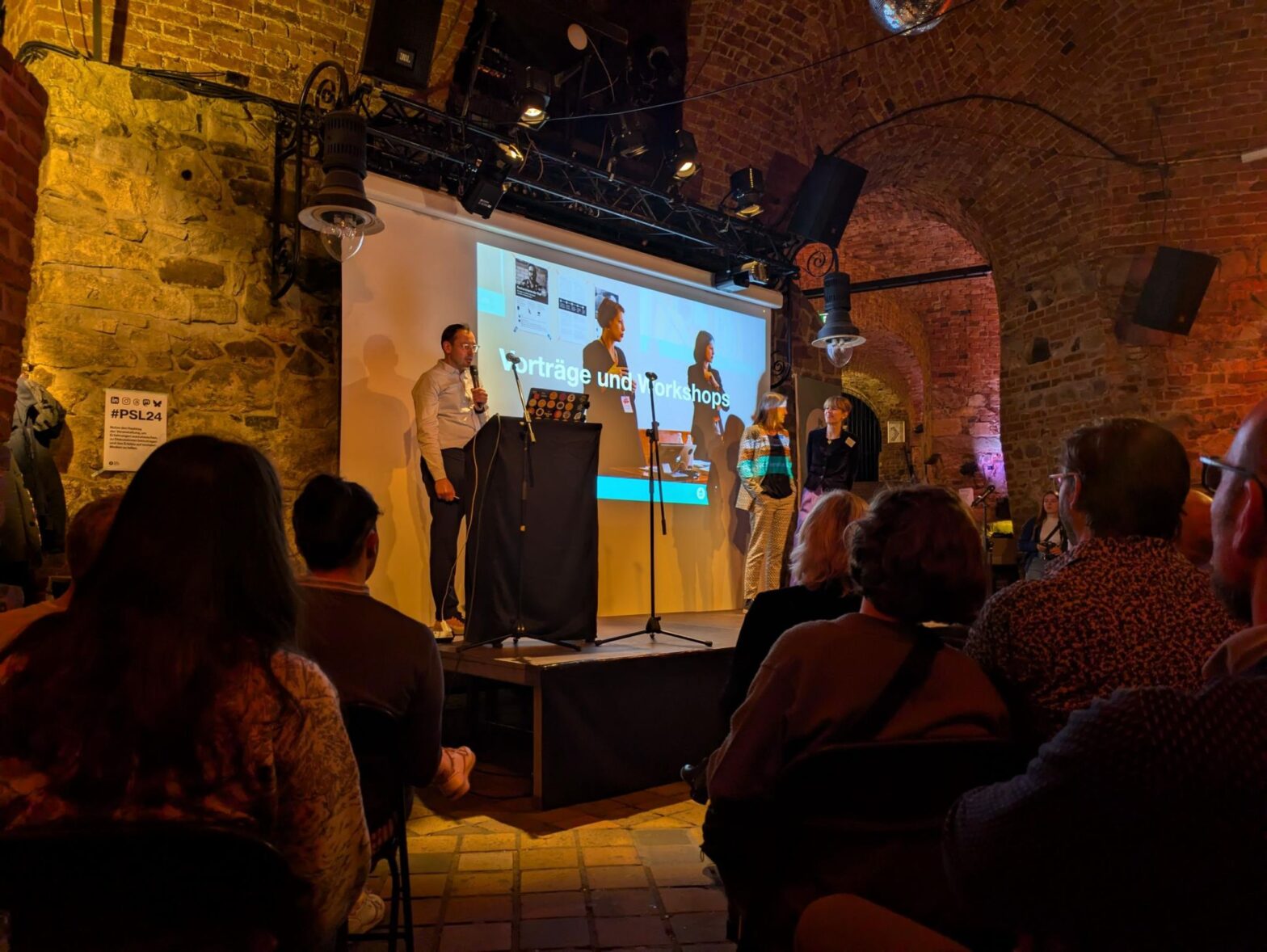This was another intense week. And I wasn’t too well. But with the help of others, we managed to get things delivered.
In the meantime, the US 2024 elections took place, and the German three-party government coalition collapsed on the same day.
German government collapsing on the same day as Trump wins the US election. This is just too much for one day.
— Martin Jordan (@martinjordan.com) November 6, 2024 at 9:38 PM
While it kept me busy during the personal hours, it had very little practical effect on what we did this week.
Kicking off a formal norming process
I was in the preparation meetings but could not participate in person.
On Wednesday and Friday, we kicked off the first workshop to create a so-called DIN SPEC linked to the updated Service Standard. Such a DIN specification is the lighter version of the German national equivalent of an ISO norm. It comes with a creation and alignment process of various months that involves plenty of different parties. Everyone interested could sign up to be part of the working group.
It carries the wordy title “Quality requirements for online services and portals in public administration” and the catchy number 66336. A page on the DIN Institute website describes the circumstances.
More than 40 participants from Federal, state and local government, as well as IT suppliers and associations, got together to get started. The draft builds on the work since summer that mostly my colleague Robert carried out. He drafted a thorough manuscript following the specific syntax of such a DIN mini norm, incorporating many ‘must’ and ‘should’ sentences. It incorporates the 12 principles of the European Interoperability Framework. The process comes with a tight timeline and the specification is scheduled to be finished by early 2025.
Finding a clear and easy-to-understand description will be one task. The other main challenge is finding common ground. Not every participant is keen on making short commitments to creating and publishing open-source software. IT suppliers, even from inside the public sector, might feel like a binding point on open source can limit their operations in an unforeseeable way. After the 1.5-day kick-off, we will proceed with various review and iteration sessions in the coming weeks, which will be held throughout November and December.
Expanding peer reviews across government
I did not expect us to get this far. But I hoped we would. On Tuesday, we ran the first-ever Service Standard peer review for a digital offering not developed at Digital Service. Developed by the Federal Environment Agency over the past year or so, we took a closer look at the ‘minimal viable version’ of a new open data metaplatform for environmental information.
It took us only 2.5 years – to move from #ServiceStandard team self-audits to peer-reviewing cross-government services. We are breaking new ground this morning. Today, we have 3 government units* reviewing the emerging mvp.umwelt.info, a platform for environmental information. 🌱🔍 Progress! 🚀
— Martin Jordan (@martinjordan.com) November 6, 2024 at 10:37 AM
It was also the first review that consisted of 3 different government entities. Simon, lead designer at the Federal IT Centre, joined as a design reviewer. Tatiana, a strategic consultant for public sector in-house consultancy PD, participated as the peer for transformational and collaboration topics in the Service Standard. They reviewed the offering for about 3 hours next to my colleagues Sonja, covering user research, Kai, covering tech and engineering, and Bene, covering product management.
Curing a cold, I was the only one dialling in while the service team travelled all the way from central Germany in Merseburg, in the state of Sachsen-Anhalt, to have an exchange and receive feedback in person.

The service team made a proper effort to present their offering and provide sufficient context. The peers asked plenty of questions but also shared some advice. They did that more than in previous sessions, which I understood and also recognised was not the format for doing so. As time is so precious for the format, questions from peers need to take priority over suggestions and practical tips. For such, the peer review report is the right place. When finishing our how-to guidance for running peer review workshops, we will have to highlight the desired balance.
The service team aims for a full release of their offering in early 2025. So, we will need to finish the report swiftly to impact their remaining development sprints.
This week, we also published the report of our September review of the parental benefits calculator. It was the first one an external reviewer, Maria, designer at the German pension provider, had participated in.
Next #ServiceStandard peer review is published—for a live offering that @digitalservice.bund.de took over from a supplier: the parental benefits calculator for the Federal Ministry for Family Affairs, Senior Citizens, Women and Youth. Here’s the review: digitalservice.bund.de/transparenz/…
— Martin Jordan (@martinjordan.com) November 7, 2024 at 5:14 PM
[image or embed]
Accelerated by the federal government’s digital strategy, we have now reviewed three of its 18 lighthouse projects. We were eager to bring in at least one more team, as they did some thorough work. That other team has been incredibly busy but might be open to a peer review in the new year. I will re-engage with them then.
Discussing how we fill government gaps
Feeling the lingering cold, I ignored my own advice and went to the office to co-host our 7th public-facing Öffentliches Gestaltung meetup. The topic was ‘filling the gaps’ and we had 2 terrific speakers joining us for reflective presentations of their work and a subsequent panel discussion.
Lilith Wittmann discussed her work on bund.dev, a bootleg public sector API platform. She explained how it came about, how they are funding the work, and why public sector organisations aren’t always keen to see certain internal APIs receive public documentation.
Gov’t doesn’t always manage to do what people expect of it. Sometimes, engaged members of civic society step in to fill gaps. They develop offerings federal, state, or municipality gov’ts could have created instead. At today’s meetup, we heard from 2: @lilithwittmann.bsky.social & Nicolas Bouliane
— Martin Jordan (@martinjordan.com) November 5, 2024 at 10:27 PM
[image or embed]
Afterwards, my former Nokia colleague Nicolas Bouliane shared his work on AllAboutBerlin. Over the past 7 years, he developed plain English guidance for immigrants moving to Berlin, helping them navigate the city and its bureaucracy. He created about 200 pages of guidance and a handful of related tools he maintains as a fully-fledged software team of one. Nicolas acts as the user researcher, UX designer, content designer, product manager and software developer.
Among the 60 people joining, some were fans of the work of the two speakers, us included.
Their work is essential and fills a gap that the public sector created or is able to fill. A question during the panel discussion was how sustainable it is for individuals to effectively run a few public services for a longer period of time. Some APIs documented on Bund.dev are used by European public sector entities. The offering responds to EU legislation that Germany would otherwise not fulfil.
I am massively grateful for Lilith and Nicolas’ generous sharing and will try to edit the recordings as soon as I can.
Running Public Service Lab Day 2024
Like every year since 2017, Katrin, Simone and I ran our annual Public Service Lab conference. This time, we went to Leipzig and partnered with an East German city for the first time. We had about 90 participants from across Germany. People travelled from Hamburg in the north, Bonn and Cologne in the west, and Munich in the south. The majority of people came from the City of Leipzig, though.
Our format is well-established now, and we have been following the same agenda for at least 3 years. There are short inputs at the beginning, followed by 2 rounds of workshops, followed by an award ceremony and short presentations from the winning teams.
My colleague Robert and I ran 2 rounds of a Service Standard draft review workshop. He had about 20 participants who reviewed the current version of the rewritten 12 points of version 2.0. People from various levels of government and the public sector took the time to read, annotate and discuss what they found. They raised some good questions like ‘How come there is no mechanism for the federal government to communicate with all municipalities?’

To my great joy, our legal aid service team won one of the awards of the ‘Preis for gute Verwaltung’, which awards user-centred public service projects. I tried to get my organisation to enter work for the past 2 years, but we were never ready. This year, the team succeded convincing the partnering ministry, too.
The Federal Ministry of Justice was at least as excited as I am. They wrote a press release about the award and prepared it for immediate publication on Friday afternoon. It even included a quote from the new justice minister, who just took over the job.
I am glad the award and the other formats of the annual conference are creating value for people. This year, the 3 awards all went to teams that include professional designers. That has not been the case in previous years and since the award launched in 2019. It indicates the progress of the German public sector and how user-centred design skills have become more common across the country.
What’s next
I am recovering and then attending various events.
I will give a talk at the Technical University of Munich’s digital government think tank. They set up a talks series on digital sovereignty, which we will host in our office on Thursday.
On Friday, I will be the final gathering of the digital strategy’s lighthouse projects.
In addition, I will co-facilitate a Service Standard workshop at a remote conference.

